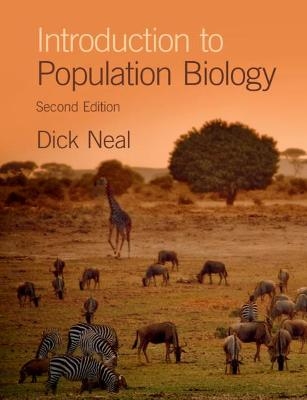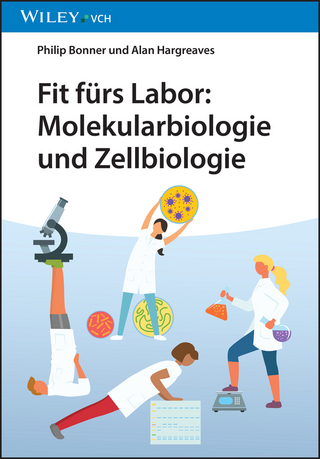
Introduction to Population Biology
Cambridge University Press (Verlag)
978-1-107-60512-1 (ISBN)
How do plant and animal populations change genetically to evolve and adapt to their local environments? How do populations grow and interact with one another through competition and predation? How does behaviour influence ecology and evolution? This second edition of Dick Neal's unique textbook on population biology addresses these questions and offers a comprehensive analysis of evolutionary theory in the areas of ecology, population genetics, and behaviour. Taking a quantitative and Darwinian perspective, Neal uses mathematical models to develop the basic theory of population processes. Key features in this edition include new chapters on inbreeding and species interactions and community structure, a modified structure in Part II, more recent empirical examples to illustrate the application of theoretical models to the world around us, and end-of-chapter problems to help students with self-assessment. A series of spreadsheet simulations have also been conveniently located online, for students to further improve their understanding of such models.
Dick Neal is Professor Emeritus at the University of Saskatchewan, Canada, having taught undergraduate ecology for almost forty years. His thesis on Ugandan rodents was conducted at the Nuffield Unit of Tropical Ecology in Uganda, and he continued this research on the breeding of African rodents with sabbaticals in National Parks in Kenya (1974–5) and Zimbabwe, (1987–88, 1990). Other research areas have included the impacts of uranium mine effluent on aquatic ecosystems; effects on the structure and function of plankton communities; and the bioremediation of contaminated pits.
Preface; Acknowledgements; Part I. Evolution by Natural Selection: 1. Darwin questions the fixity of species; 2. Darwin's evolutionary theories; 3. Understanding natural selection; Part II. Population Growth Models: 4. Exponential growth; 5. Logistic growth; 6. Life tables; 7. Growth of age-structured and stage-structured populations; 8. Evolution of life histories; Part III. Population Genetics and Evolution; 9. The Hardy-Weinberg principle; 10. Mutation and the genetic variation of populations; 11. Genetic drift and effective population size; 12. Inbreeding; 13. Migration, gene flow and differentiation of populations; 14. Haploid and zygotic selection; 15. Applying zygotic selection models to natural systems; 16. Polygenic inheritance and quantitative genetics; 17. Population genetics: summary and synthesis; Part IV. Interactions between Species, and Community Structure: 18. Interspecific competition; 19. Predator-prey interactions; 20. Species interactions and community structure; Part V. Animal Behaviour, Altruism, and Sexual Selection: 21. Animal behaviour, altruism, and limiting aggression; 22. Sexual selection and mating systems; 23. Epilogue; Glossary; Solutions to problems; References; Index.
| Erscheinungsdatum | 29.11.2018 |
|---|---|
| Zusatzinfo | 4 Maps; 33 Halftones, black and white; 188 Line drawings, black and white |
| Verlagsort | Cambridge |
| Sprache | englisch |
| Maße | 188 x 243 mm |
| Gewicht | 990 g |
| Themenwelt | Naturwissenschaften ► Biologie ► Allgemeines / Lexika |
| Naturwissenschaften ► Biologie ► Botanik | |
| Naturwissenschaften ► Biologie ► Evolution | |
| Naturwissenschaften ► Biologie ► Ökologie / Naturschutz | |
| ISBN-10 | 1-107-60512-1 / 1107605121 |
| ISBN-13 | 978-1-107-60512-1 / 9781107605121 |
| Zustand | Neuware |
| Informationen gemäß Produktsicherheitsverordnung (GPSR) | |
| Haben Sie eine Frage zum Produkt? |
aus dem Bereich


